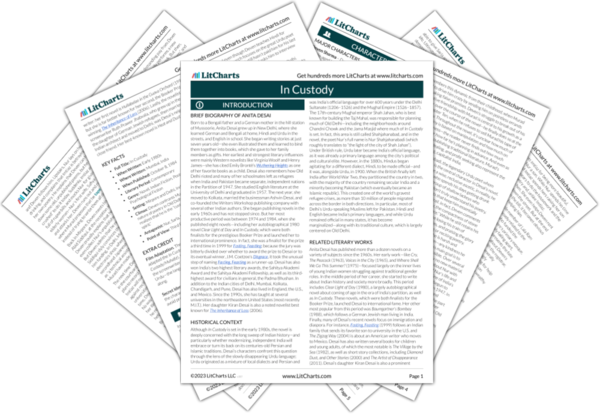Deven’s memories from childhood show that his problem clearly
isn’t a failure to recognize Murad’s behavior as coercive, controlling, and opportunistic. Rather, it’s figuring out what to
do about this behavior. After all, Deven clearly benefits from his friendship with Murad, who has the money and connections that he lacks. Over the course of the book, readers will notice this pattern repeating itself: Deven laments how others take advantage of him, but he doesn’t realize that
he is taking advantage of other people, too. Meanwhile, Murad’s office is clearly underwhelming—which underlines how marginal Urdu literature has become to the Indian public. But it also becomes clear that Murad wasn’t actually trying to hide his office from Deven, which just adds to the sense of confusion that envelops this scene.
